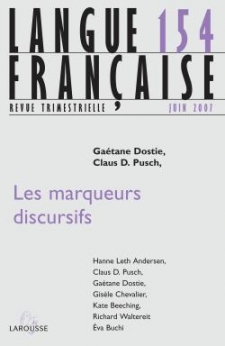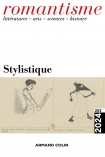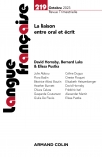
Langue française n° 154 (2/2007)
Pour acheter ce numéro, contactez-nous
Recevez les numéros de l'année en cours et accédez à l'intégralité des articles en ligne.
This article takes a sociolinguistic approach to the study of the co-variation of a set of frequently occurring markers in three corpora of spoken French, dated 1968, 1988 and 2002. A Factor Analysis yields three Factors, labelled “Normal/Deferent”, “Modern/ Camaraderie” and “Tradition/Formality”. The most recent corpus, and in particular its youngest speakers, have higher rates of “Modern/Camaraderie” and lower rates of “Tradition/Formality”. The Factor “Modern/Camaraderie”, interestingly, combines diachronic developments of two sorts, however ; the spread of the sociolinguistically stigmatised quoi and the more intralinguistically-motivated spread of bon. The gradual pragmaticalisation of the latter allows it to be used in a greater number of contexts and thus increase in frequency. Frequency rates of these Factors correlate to a greater extent with the generation of the speaker than with educational background, sex or age per se. This suggests not only that modes of politeness are shifting but that speakers identify more closely with their own generation than with those of a similar educational background.

